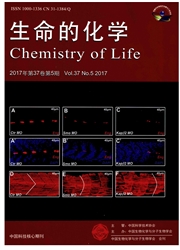

 中文摘要:
中文摘要:
腺相关病毒(adeno-associated virus,AAV)本身具有抗肿瘤活性,以其为基础构建的重组腺相关病毒(rAAV)作为肿瘤基因治疗载体已应用于临床试验研究。与其他的药物一样,单一的AAV基因药物,可能无法对肿瘤这一多基因、多步骤的复杂疾病发挥有效的治疗作用。国内外实验研究发现,多种化疗药物和放疗手段,不但可以提高rAAV载体的基因表达效率,也能促进AAV病毒本身的复制;反过来,AAV可以提高肿瘤细胞对放化疗的敏感性。联合AAV与其他的肿瘤治疗策略将有助于优化肿瘤治疗效果。
 英文摘要:
英文摘要:
Recombinant adeno-associated-virus (rAAV) has been used as a vector for tumour gene therapy in clinical trials. Moreover, adeno-associated-virus (AAV) itself is able to inhibit cancer cell growth. However, rAAV gene therapy alone may not be effective to treat tumours, as they are multi-gene, multi-step complex diseases. Interestingly, domestic and foreign experimental researches show that many chemotherapy drugs and radiotherapy, not only can enhance the transduction efficiency of rAAV vector, but also can promote the replication of AAV itself. In turn, AAV can increase the sensitivity of tumor cell to radiotherapy and chemotherapy. Thus, it is possible to optimize the efficiency of tumour therapy by combination AAV with other anti-turnout strategies.
 同期刊论文项目
同期刊论文项目
 同项目期刊论文
同项目期刊论文
 期刊信息
期刊信息
